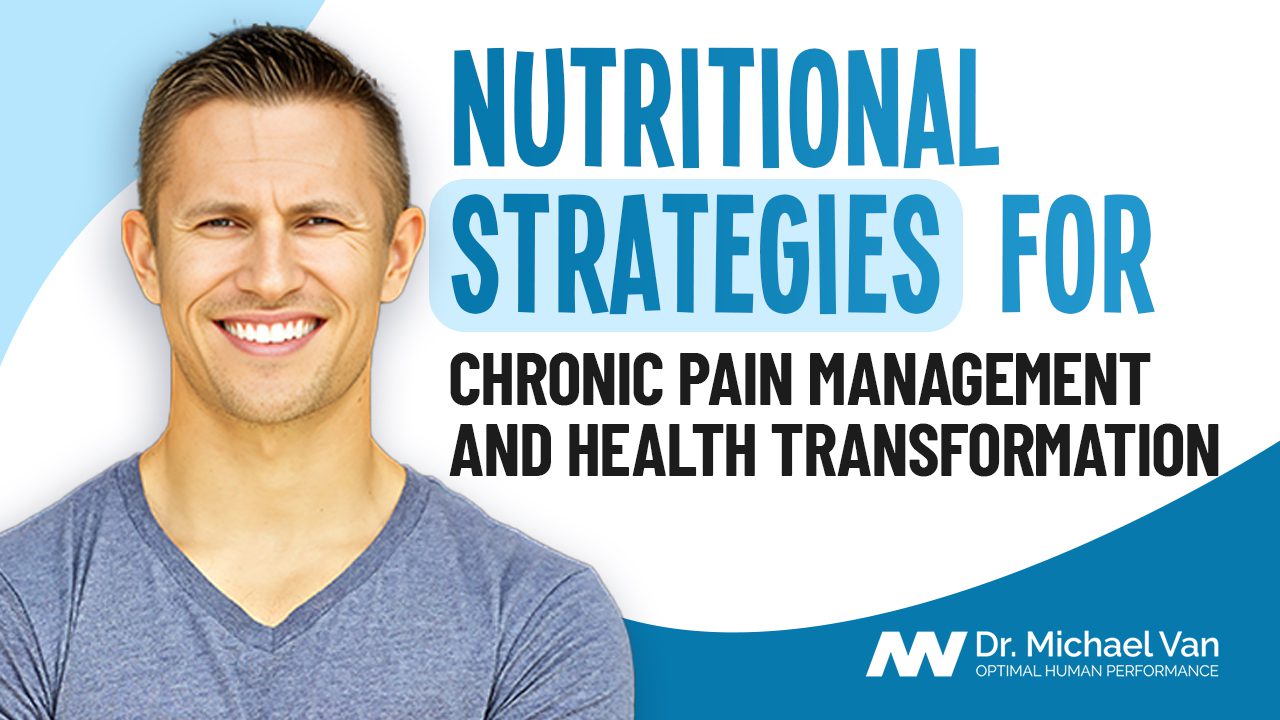Nutritional Strategies for Chronic Pain Management and Health Transformation

Managing chronic pain often requires a multifaceted approach, with one key component being diet and nutrition. While certain foods can exacerbate inflammation and contribute to pain symptoms, others can have pain-relieving and anti-inflammatory effects that support the body's natural healing processes. By making informed dietary choices, individuals experiencing chronic pain can promote a healthier, more balanced internal environment, setting the stage for lasting pain relief and health transformation.
Dr. Michael Van, a specialist in chronic pain management and health transformation, is well-versed in the critical role that nutrition plays in his patients' overall well-being. By implementing targeted dietary changes and providing personalized nutritional guidance, Dr. Van empowers his patients to take an active role in their own healing journey and achieve a higher quality of life.
Identifying Inflammation-Triggering Foods
One of the first steps in adopting a diet that supports pain management is identifying inflammation-triggering foods, which can exacerbate chronic pain symptoms. Common culprits to be aware of include:
- Sugar and Refined Carbohydrates: Consuming high amounts of added sugars and refined carbs can cause inflammation and contribute to weight gain, which may worsen pain symptoms. Opt for healthier sources of carbohydrates, such as whole grains, fruits, and vegetables.
- Saturated and Trans Fats: These unhealthy fats, found in processed foods, fast food, and red meat, can lead to increased inflammation. Replace them with healthier fats, like those found in nuts, seeds, and fatty fish.
- Alcohol: Excessive alcohol consumption can contribute to inflammation and negatively impact liver function, which plays a role in detoxification and pain management. Practice moderation when consuming alcoholic beverages.
- Nightshade Vegetables: Some individuals may have sensitivities to nightshade vegetables, such as tomatoes, eggplants, and peppers, which can cause inflammation and pain. If you suspect a sensitivity, try eliminating these foods from your diet and observe any changes in your pain symptoms.

Subscribe To Dr Mike's MVP Newsletter!
Exclusive content, interesting topics, real insights.

Subscribe To Dr Mike's MVP Newsletter!
Exclusive content, interesting topics, real insights.
Anti-Inflammatory Diets and Their Role in Pain Management
There are several dietary approaches that focus on reducing inflammation and promoting overall health, which can be particularly effective for managing chronic pain. Two popular examples are:
- The Mediterranean Diet: This diet emphasizes the consumption of fruits, vegetables, legumes, whole grains, lean proteins, and healthy fats, such as olive oil. Research has shown numerous health benefits, including reduced inflammation and chronic disease risk, associated with the Mediterranean-style eating plan.
- The DASH Diet (Dietary Approaches to Stop Hypertension): Initially designed to lower high blood pressure, the DASH diet focuses on nutrient-dense, anti-inflammatory foods like fruits, vegetables, lean proteins, and whole grains. Following this dietary approach may lead to lower levels of inflammation and support more effective pain management.
Supplements for Supporting Chronic Pain Relief
While a well-balanced, nutrient-dense diet should be the foundation of your pain management nutrition plan, certain supplements may provide additional support for reducing pain and inflammation. Consider discussing the following supplements with Dr. Michael Van or another healthcare professional before incorporating them into your regimen:
- Curcumin: Derived from turmeric, this potent anti-inflammatory compound has been shown in studies to effectively alleviate pain and inflammation.
- Omega-3 Fatty Acids: Research suggests that omega-3s, found in fish oil supplements, can decrease inflammation and support overall joint health.
- Vitamin D: Adequate vitamin D levels are essential for bone and immune system health. Individuals with chronic pain and low vitamin D levels may experience improvements in pain after supplementing with this vital nutrient.
- Magnesium: Magnesium deficiency has been linked with increased inflammation and muscle pain. Supplementing with magnesium may help promote relaxation, improve sleep, and support pain reduction.
Always consult with a healthcare professional before beginning any new supplement regimen, as individual needs and potential interactions with medications should be carefully considered.
Lifestyle and Habits That Impact Nutrition and Chronic Pain
In addition to dietary choices, other daily habits can have a significant impact on nutrition, pain management, and overall health. Consider implementing the following recommendations:
- Stay Hydrated: Adequate hydration is essential for overall health and pain management. Aim to consume at least eight cups of water per day, or more if you're physically active or live in a hot climate.
- Plan Balanced Meals: Prepare nourishing, anti-inflammatory meals by incorporating a variety of whole, unprocessed foods. Strive for a mix of lean proteins, complex carbohydrates, healthy fats, and plenty of vegetables.
- Practice Mindful Eating: Savor your meals by eating slowly, without distractions. This practice can help to improve digestion and prevent overeating, which can contribute to inflammation and pain.
- Reach a Healthy Weight: Carrying excess weight puts extra strain on joints and can worsen pain symptoms. Commit to a balanced, nutrient-dense diet and regular physical activity to achieve and maintain a healthy weight.
Conclusion
Taking charge of your nutrition and making purposeful dietary choices can make a world of difference in managing chronic pain and promoting a lasting health transformation. By identifying inflammation-triggering foods, adopting an anti-inflammatory diet, considering supplements with guidance from a healthcare professional, and attending to lifestyle habits that impact pain and overall health, individuals can greatly enhance their well-being and quality of life. Dr. Michael Van's expertise and dedication to his patients' success make him a trusted resource for those seeking to harness the power of nutrition in their pain management journey.
Stay tuned to our blog for more in-depth articles on the transformative potential of diet, lifestyle, and supplements in chronic pain relief and health transformation. You may also check out Dr. Van’s health & wellness book and be guided by his unwavering commitment to helping his patients achieve pain-free, flourishing lives.
Dr. Michael Vanderschelden, DC
18600 Main St STE 110
Huntington Beach, CA 92648
Copyright ©2026
Site designed by iTech Valet
Subscribe To Dr Mike's MVP Newsletter. Exclusive Content ONLY!
Dr. Michael Vanderschelden, DC
18600 Main St STE 110
Huntington Beach, CA 92648
Copyright ©2026
Site designed by iTech Valet
*These statements have not been evaluated by the Food and Drug Administration. These products are not intended to diagnose, treat, cure or prevent any disease.
